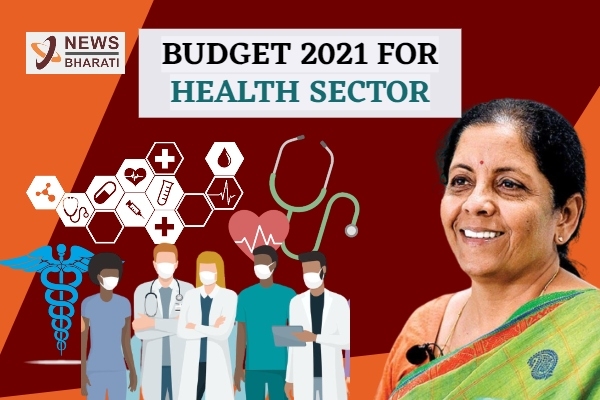Does Healthcare really need a shot of Funds- #BUDGET2021?
Total Views |
As the countdown for the Union Budget 2021-22 has begun, India is ready for its "never before" like paperless Union Budget which will Usher "New Era Of Growth". This year's Union Budget has emerged as the 'Budget of hope' which aims to boost the economy which has been derailed due to COVID. Every sector in the country is looking forward to a slew of sops in the upcoming Union Budget.

With that, Budget 2021 has a task cut out to meet both the transitional and strategic needs of the sector. Right now, the health care sector is in the limelight in this year's Budget session. The health sector has consistently been underfunded over the years. Thanks to COVID 19! Covid-19 underlines how a healthcare crisis can become an economic and social crisis.
This pandemic has stressed the need for higher budget allocation for the healthcare sector. Health and economy were closely intertwined in our priorities last year. The last year has become an eye-opener for the government and everyone. COVID-19 has brought new challenges and expenses in healthcare to the fore. It has exposed the gap in the healthcare system and also highlighted the need for major and modernized infrastructure. The pandemic has completely changed the dynamics of the Indian healthcare ecosystem. The situation has forced everyone to think about the money India spends to strengthen its healthcare sector.
Over the past decade or so India has consistently spent just over 1% of its GDP on healthcare which is way lower than in most countries. It is extremely low and that is the reason why most spending is through out-of-pocket expenditures. Advanced nations spend almost 14-18% of their GDP on health and even poor countries like Bangladesh and Sri Lanka spend more on the health of their citizens than India does.
India typically spends most of its budget on defense. In last year's budget, the defense ministry received seven times as much money as the health ministry. Last year Sitharaman had allocated Rs 69,000 crore or 1.28 percent of the country's Gross Domestic Product (GDP) for health. However, this later expanded to 1.6%.
However, this year's budget needs to significantly divert resources to aid the sector and health workers. Experts have predicted that the allocation for the healthcare sector in the Union Budget 2021-22 is likely to go up by 40 percent. The Indian government, in its National Health Policy of 2017, had set itself a target of increasing healthcare spending to 2.5% of the GDP by 2025. To achieve its target the government should be completed in a year or two to improve healthcare infrastructure.
COVID has reiterated the need for increased investment in healthcare infrastructure, national-level programs for skill development and training of healthcare staff, an increase in the number of medical colleges, effective PPP models, and a further boost for local manufacturing.
The pandemic stretched thin India's healthcare infrastructure. It revealed an urgent need for higher budget allocation for the sector, therefore, Government schemes providing subsidized loans and land for setting up hospitals will go a long way. Incentives to the private sector should be provided to modernize healthcare facilities and increase investment in rural and remote areas, which will also help in generating employment. In the long-term, the government also needs to invest more in Research & Development and in improving the overall infrastructure.
The 2021 budget presents an opportunity to mark a departure from the chronic, low public spending on health. The pandemic has also reinstated the fact that the government needs significant investments in funding research on infectious diseases and strengthening the capabilities of institutions working in this area.
The work done by the National Health Mission (NHM) must continue, and there should be a sectoral regulator to supervise the healthcare sector. Moreover, telemedicine needs to be harnessed to the fullest by investing in internet connectivity and health infrastructure.
This budget should also take steps for making healthcare more affordable by implementing a ‘zero-rating’ of GST for healthcare services and products including drugs, medical devices, and health insurance premiums. This will increase the affordability and accessibility of healthcare products and services. Additionally, the accumulated input tax credit should be refunded to healthcare service providers.
.
.


